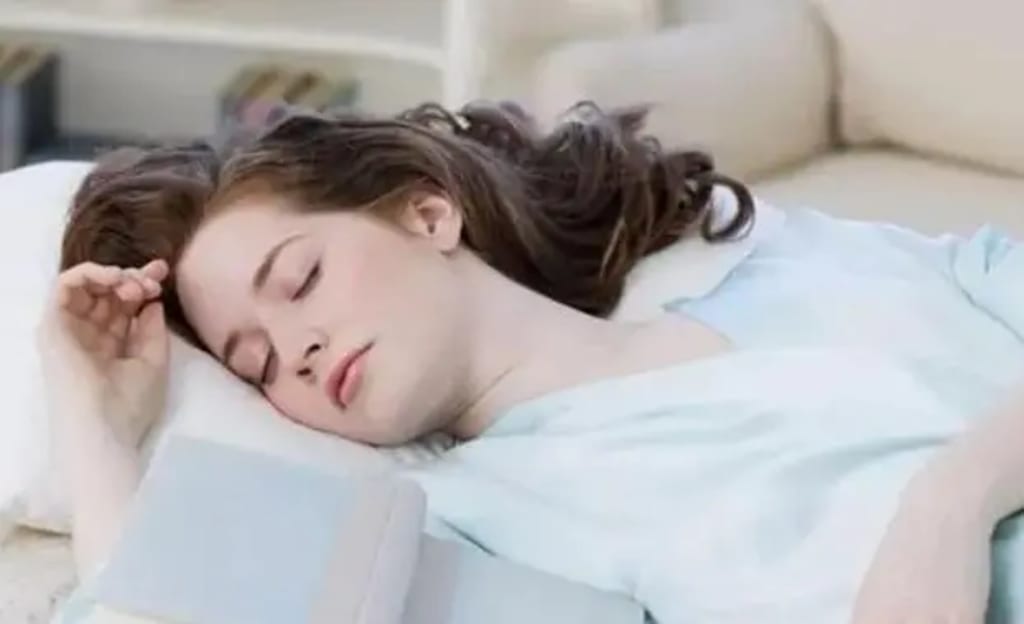When menstruation is about to "leave", the body may give 6 "hints"
Women eat more of these 3 kinds of food after menopause

Women can't avoid the arrival of their "best friend" menstruation every month, and the menstrual period is mostly kept within a week to help the body excrete the toxins and waste in the body.
Especially for women skincare has a certain use, once you enter the age of 45, you will face the problem of menopause, this problem is plagued by women's friends.
Once menopause, the body's aging rate declines, seriously affecting the appearance of personal image. As long as you maintain a good mindset and adopt healthy habits, most people can get through it.
01
About menstruation
When do women get their periods?
Girls usually get their periods at the age of 10-15. Most girls get their period at the age of 11-12. The first menstrual period for girls is called the first menstrual period and is an important sign of puberty.
If you are over 15 years old and have not had your period, you are mostly considered to have primary amenorrhea, or you have not had your period over 14 years old. Also, if the secondary female sexual characteristics have not yet started to develop, both should be considered primary amenorrhea.
However, each woman's endocrine hormones, including the environment and stress, are different, so there may be a certain amount of advancement or delay.
However, the duration of each advance and delay is within a fixed range and is considered a normal cycle. Because not all women are not worse than one day, so this should also be noted.
Normal menstrual standard]
Generally speaking, the normal menstrual cycle for a healthy woman should be about 28-30 days. Some women have a normal menstrual cycle of 35 days because the length of menstruation and the amount of menstruation is affected by various factors.
Usually, the duration of menstruation is 2-7 days. It is normal to have a period within 7 days of the last menstrual date, if it is more than 7 days it is considered to be too long.
The total amount of blood lost during each period is called the volume of menstruation. The normal volume of menstruation is 20ml-60ml, and if it exceeds 80ml, it is called excessive menstruation.
Similarly, if the period lasts for more than 8 days, it is called prolonged menstruation. Long menstrual periods may cause anemia in women or induce infections in the reproductive tract, and the cause needs to be clarified in time.
What is the average age of menopause for women?
The average age of menopause for women is 49.5 years old, which is the average age of menopause for Chinese women according to big data. The phenomenon of menopause below the age of 40 is called premature ovarian failure.
Premature menopause can cause a woman's heart rate, mental decline, and dementia, and can affect her speech, vision, and memory in various ways.
Women who experience premature menopause will lose their fertility earlier and will also enter aging earlier, looking much older than their peers. It is also abnormal to be older than 55 years of age and still have regular menstruation.

Some women who have menopause later than 55 years old may have the wrong idea that they are still very young, and a well main well-maintained system can indeed delay menopause.
However, if you do not experience menopause later than 55 years old, you should go to a regular hospital for a checkup to determine if there is a tumor in your reproductive system that is causing abnormally high estrogen in your body.
02
When menstruation is about to "leave", the body may give 6 "hints", and may wish to know in advance
1. Hot flashes on the face
Generally, this symptom is a common phenomenon in women before menopause, because women's body secretion changes before menopause, and the formation of this phenomenon, will gradually spread to the whole face in the lower part of the body.
This leads to a marked reddening of the blood vessels in the face, and the body may become hot and sweaty. It can also be accompanied by dizziness, which varies from person to person.
2. Night sweats
After women reach a certain age, due to changes in hormone levels in the body, the ovarian function gradually declines and weakens, making it easier for them to experience hot flashes and night sweats. This is especially true during sleep at night, which is more obvious.
However, due to the different physical qualities of each person, some women may experience a red rash on the upper part of the body and redness on the neck. However, this symptom usually disappears on its own for a few minutes, but it tends to recur.
3. Menstrual disorders
Menstruation is mainly affected by estrogen, but the decision of women is not sudden, but a gradual process. This is because it is also a gradual process when estrogen decreases in middle-aged women.
So women can pay more attention to the status of their menstruation as they enter middle age. If you find menstrual disorder and irregularity, it may indicate the approach of menopause.
4. Big emotional changes
When women go through menopause, one of the most obvious changes is the change of emotions, easy to high and high, anger unstable emotions, by many men called "mother tiger can not stand" often will hide away.
In fact, at this time, women need more male understanding, understanding each other, taking her out of the mood to take a walk, moderate exercise, and improve their bad lifestyle. Not only is it beneficial to ease the discomfort of menopause, but it can also prevent depression.
5. Urinary incontinence
In a healthy state, urinary incontinence is less likely to occur when urinating, but after women enter the age of 45, they will experience frequent incontinence.
The urethra becomes shorter and narrower before and after menopause, which makes the sphincter muscle less elastic. So that the bladder as well as the ability to urinate is not under control, there is this situation indicates that menstruation immediately leaves.
6. Plant nervous disorder
There will be numbness in the limbs and abnormal sensation in the extremities, especially at night. There are also spasms, legs always feel like they don't know where to put them, pain in the belly, panic attacks, insomnia, and sometimes depression and paranoia.
03
Extension: women are recommended to eat more of these 3 kinds of food after menopause
1. milk
Women can drink milk properly after menopause, and play a good health effect by getting the rich nutrition in milk. Because of the obvious decline in ovarian function after menopause, will affect the secretion of estrogen.
The decrease in estrogen secretion in addition to the body aging speed, calcium absorption capacity will also be reduced, through the appropriate drink of milk to obtain the rich calcium inside.

2. black sesame
Once a woman is menopausal with hormone secretion disorder, she must pay attention to the way of hormone supplementation. Black sesame has such an effect. Not only are they rich in calcium and iron, but they also contain vitamins a and e.
It can effectively maintain the level of hormones, but also the body can be discharged toxins, improve pigmentation, and is conducive to beauty.
3. cinnamon
Longan is warm food, for women to nourish the qi and blood, protect the ovaries, and promote the role of sleep. Longan is rich in a variety of nutrients, with the brain, nourishing the heart, and spleen and, calming the mind, insomnia, and other effects.
About the Creator
Diane Dora
man may lead a horse to the water, but he cannot make it drink.






Comments
There are no comments for this story
Be the first to respond and start the conversation.